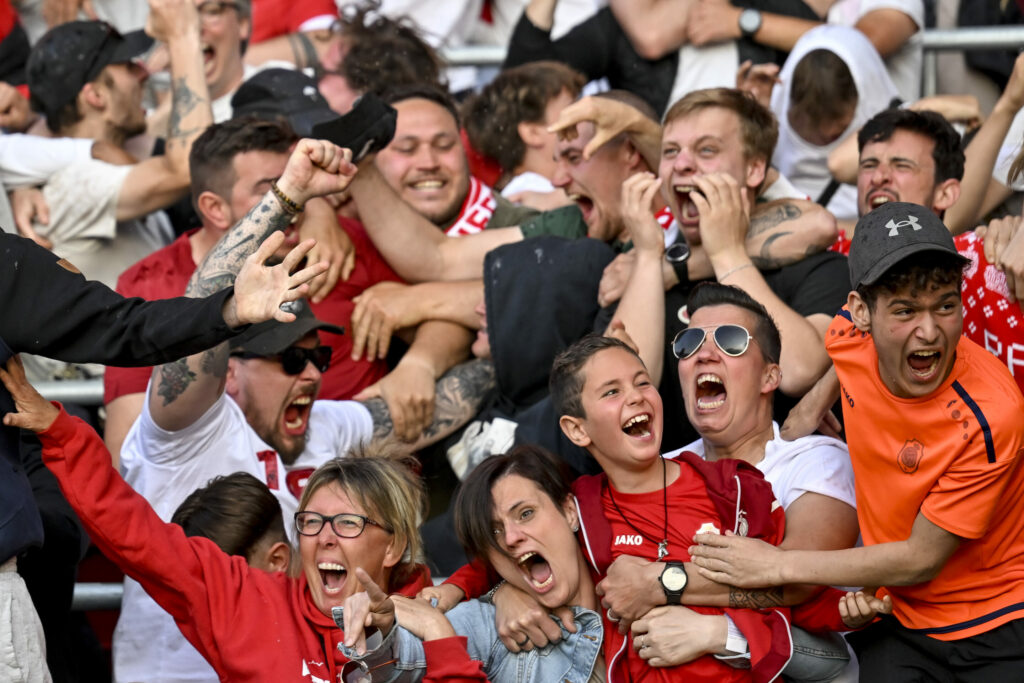In the realm of biomedical research, an intriguing question has emerged: could the victories of sports teams actually impact birth rates?
This unconventional inquiry, spearheaded by biomedical researcher Gwinyai Masukume, delves into the phenomenon known as "celebratory sex," suggesting that fans may engage in more sexual activity following their team's triumphs.
Masukume, alongside colleagues from University College Dublin in Ireland, conducted a study shedding light on the correlation between home team victories or tournament wins and subsequent spikes in birth rates. Conversely, defeats seem to correspond with a decline in births approximately nine months later. This pattern, unveiled through the analysis of data gathered during significant sporting events worldwide, mirrors what is commonly referred to as "celebratory sex" during holidays like Christmas or New Year's Day.
While Masukume's study implies that exceptional sporting performances may stimulate increased fertility among fans, researchers Luca Fumarco and Francesco Principe introduced a more nuanced perspective. Their study, focusing on national football teams, explores whether victories in such competitions directly correlate with heightened fertility.
The conclusion? It's not a straightforward affair. Fumarco and Principe argue that the impact of sporting events on fertility depends on various factors, including unique communal engagements and decreased intimate time with partners during celebratory gatherings.
Additionally, recent research published in the British Medical Journal sheds further light on the intriguing correlation between major football victories and a surge in births.
Researchers in Catalonia, Spain, analysed birth data spanning five years, revealing a notable uptick in births following FC Barcelona's triumphant football season in 2009. Dubbed "the Iniesta effect" after Andrés Iniesta's decisive goal in the UEFA Champions League semi-final, this phenomenon underscores the impact of collective emotions on demographic trends.
However, the study refutes exaggerated claims of a 45% surge in births, revealing a more modest 16% increase nine months after FC Barcelona's wins. While confirming a surge in births linked to the team's successes, researchers caution against solely attributing the phenomenon to football-induced euphoria, suggesting broader societal factors at play.
A decline?
Further studies explore the broader implications of major sporting events on birth rates. A comprehensive analysis spanning six major tournaments across different countries and continents unveils correlations between events like the Super Bowl, UEFA Champions League, FIFA World Cup, UEFA Euros, and Rugby World Cup, and subsequent shifts in birth metrics.
Unexpectedly, improvements in performance by European national football teams during prestigious championships were associated with a decline in births nine months later, challenging conventional wisdom and highlighting the complexities of the relationship between sporting fervour and birth rates.
In essence, this research not only illuminates the curious connection between major sporting tournaments and subsequent baby booms but also underscores the multifaceted nature of human behaviour and societal dynamics. As communities come together in celebration of athletic prowess, the ripple effects extend far beyond sports, shaping demographic trends in unforeseen ways.
As researchers continue to explore this captivating intersection of sports and society, one thing remains clear: the dynamics between athletic triumphs and birth rates are far from straightforward, emphasising the complexity of human behaviour and the diverse influences that shape demographic trends.

